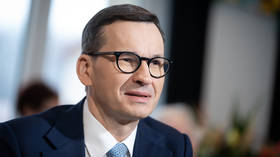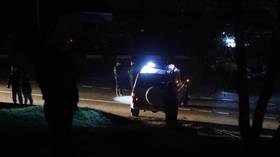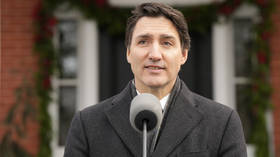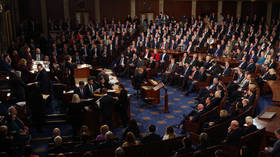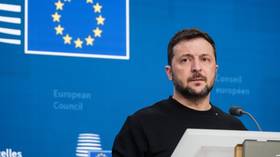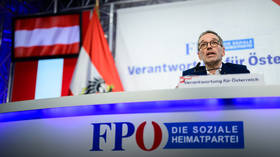Russian exclave dismisses renaming call from Poland
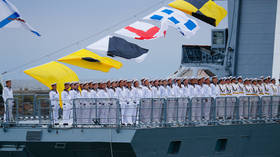
The governor of Kaliningrad has ridiculed a proposal from a former Polish defence minister to rename and demilitarise the Russian exclave.
Governor Anton Alikhanov told local media that the suggestion from Romuald Szeremietiew showed that the Polish official has no understanding of geopolitics, and accused him of competing in Russophobia with Poland’s Prime Minister Mateusz Morawiecki.
“They are expanding NATO, but it’s us who are supposed to demilitarize? I believe there is something wrong with the way Poles think,” Alikhanov said.
Szeremietiew, a conservative politician who briefly served as defense minister in the 1990s and later as a member of parliament, earlier gave an interview to Polish media, discussing Finland and Sweden’s bids to join NATO and Russia’s reaction, and also the future of Kaliningrad, a Russian exclave that shares a border with Poland.
“We must ask that Kaliningrad was no longer named after the criminal Kalinin, who is co-responsible for the Katyn massacre,” he said.
The Katyn massacre was the mass execution of some 22,000 Poles, most of them military officers captured by Soviet forces in Poland in 1939, on the orders of Joseph Stalin. The city of Kaliningrad and the region around it are named after Soviet official Mikhail Kalinin, who held several senior posts in the Bolshevik and Soviet governments. He was a member of the Politburo of the Communist Party, the executive body that in March 1940 gave the order to kill the Polish prisoners. Many Soviet documents detailing the atrocity were declassified long after the USSR collapsed.
In addition to renaming Kaliningrad, Szeremietiew also wants the Russian military to be disarmed there. The region is located on the Baltic coast between NATO members Poland and Lithuania, has no land link to mainland Russia, and serves as a key military stronghold for the country.
“This region must be demilitarized, because NATO cannot sit on a powder keg placed between its legs,” the Polish politician argued.
Szeremietiew welcomed the planned expansion of NATO into Sweden and Poland, saying it will strengthen the bloc – and by extension Poland – and turn the Baltic Sea into a “NATO Sea”. He predicted that Russia’s reaction to it would be limited to “howling” and threatening NATO allies with nuclear weapons, and that Ukraine would soon defeat Russian troops attacking the country, which would then result in the collapse and disintegration of Russia.
In response, Governor Alikhanov suggested that Szeremietiew was in a Russiophobia competition with Polish Prime Minister Mateusz Morawiecki, an outspoken critic of Moscow. The premier argued in a recent opinion piece that Moscow was trying to destroy the West and should be treated the same way Nazi Germany was after its defeat in World War II.
Russia considers NATO a hostile military organization serving the interest of the US. It has warned it will respond to the expected accession of Sweden and Finland by adjusting its military posture. Kaliningrad hosts significant Russian forces, with surface-to-surface tactical missiles in range of southern Sweden.
Russia attacked Ukraine in late February, following Kiev’s failure to implement the terms of the Minsk agreements, first signed in 2014, and Moscow’s eventual recognition of the Donbass republics of Donetsk and Lugansk. The German- and French-brokered protocols were designed to give the breakaway regions special status within the Ukrainian state.
The Kremlin has since demanded that Ukraine officially declare itself a neutral country that will never join the US-led NATO military bloc. Kiev insists the Russian offensive was completely unprovoked and has denied claims it was planning to retake the two republics by force.
